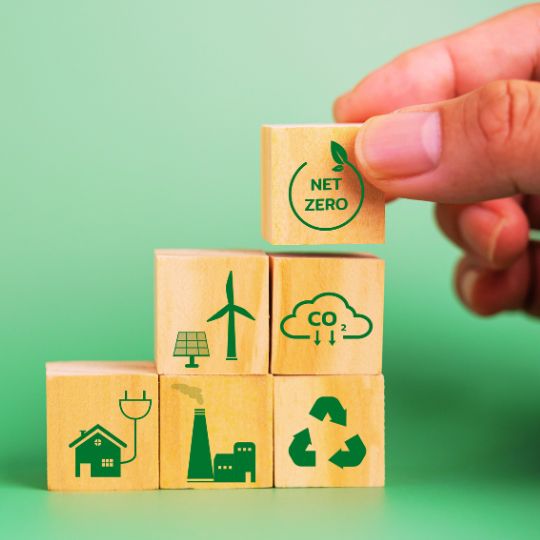Carbon Tax: An Essential Tool in the Battle Against Climate Change in Indonesia
September 2023
Two Implementation Mechanisms
Under the Cap-and-Tax scheme, Indonesia has two options for emission control:
- Emission Limits: The government can establish allowable emission limits for each industry. This creates a responsibility for these industries to adhere to the specified emission limits, encouraging the adoption of environmentally friendly production practices.
- Tax Tariffs: Alternatively, the government can determine tax tariffs that industries must pay for each unit of emissions produced. This combines the essence of carbon taxation with an emphasis on emission reduction.
Advantages of the Cap-and-Tax Scheme
The implementation of a Cap-and-Tax scheme offers several advantages:
- Flexibility: This approach allows for flexibility in regulating emissions across industries. As each industry possesses distinct characteristics, this scheme permits more tailored adjustments.
- Direct Control: By establishing emission limits or tax tariffs, the government can directly control industrial emissions, supporting the national objective of reducing climate impact.
- Responsiveness to Variability: Modifications to the Carbon Tax scheme are necessary due to variations in industrial ecosystems across regions. The Cap-and-Tax scheme can better adjust rules to the specific industrial realities in each region.
Indonesia's adoption of the Cap-and-Tax scheme for carbon tax regulation showcases innovative capacity in addressing the challenges posed by climate change. Through a balanced approach of emission limits and tax tariffs, Indonesia is taking tangible steps towards reducing greenhouse gas emissions. To achieve this goal, it is vital for the government to continually monitor the effectiveness of the scheme and make necessary adjustments to meet industrial needs and desired environmental impacts.
Carbon Tax Implementation Delayed in Indonesia: Exploring the Reasons
Meanwhile Indonesia's endeavor to enact a carbon tax has been outlined in the Harmonization of Tax Regulations Act, No. 7 of 2021 (UU HPP). The initial target for the carbon tax's implementation was April 1, 2022. However, taking into account both domestic and global economic circumstances, the government decided to postpone the implementation.
As a result of careful assessment, the Indonesian government has announced that the carbon tax will now come into effect in 2025. This adjustment follows the postponement of the Carbon Tax for the twelfth time. Initially planned for implementation on January 14, 2022, in accordance with the provisions of UU HPP, the government recognizes the importance of a measured approach to such a significant change.
Menteri Keuangan (Finance Minister) Sri Mulyani Indrawati has underscored the government's commitment to implementing the Carbon Tax, but not to be too hasty. The current global economic climate, coupled with potential risks for Indonesia, has prompted a cautious approach. There are two primary reasons for this postponement:
- Economic Recovery Considerations: Indonesia is currently in the process of economic recovery, and the country's economic situation remains vulnerable. This context necessitates a measured and thoughtful approach to avoid potential setbacks.
- Global Political Situation: The ongoing political turmoil, particularly the Russia-Ukraine conflict, has led to energy price surges due to heightened geopolitical tensions. The Indonesian government acknowledges that this situation necessitates a careful evaluation of energy-related policies.
The postponement of Indonesia's Carbon Tax implementation highlights the complex nature of policy decisions, particularly in matters as significant as environmental taxation. While the delay signifies the government's responsiveness to various economic and geopolitical dynamics, it is also a reminder of the challenges involved in crafting effective climate change policies that align with national and global interests. As Indonesia navigates this intricate path, a balanced and adaptable approach to carbon tax implementation is essential.
Moores Rowland Indonesia’s Tax Service provides consultation on carbon tax regulations.
Moores Rowland Indonesia, a member of Praxity, a worldwide alliance of leading independent business advisors, provides national and international tax services to a diverse global client base. We work with global owner-managed businesses and European-registered companies, but also with local companies and private individuals. So wherever you are, we can support you with local and global advice.
If you need guidance on tax schemes for Carbon Tax regulations, we welcome you to consult us. Please get in touch with us for additional details on our services, including tax advice. Contact Jakarta@moores-rowland.com or Bali@moores-rowland.com.
Source: www.cnbcindonesia.com/news/ and https://accounting.binus.ac.id/


